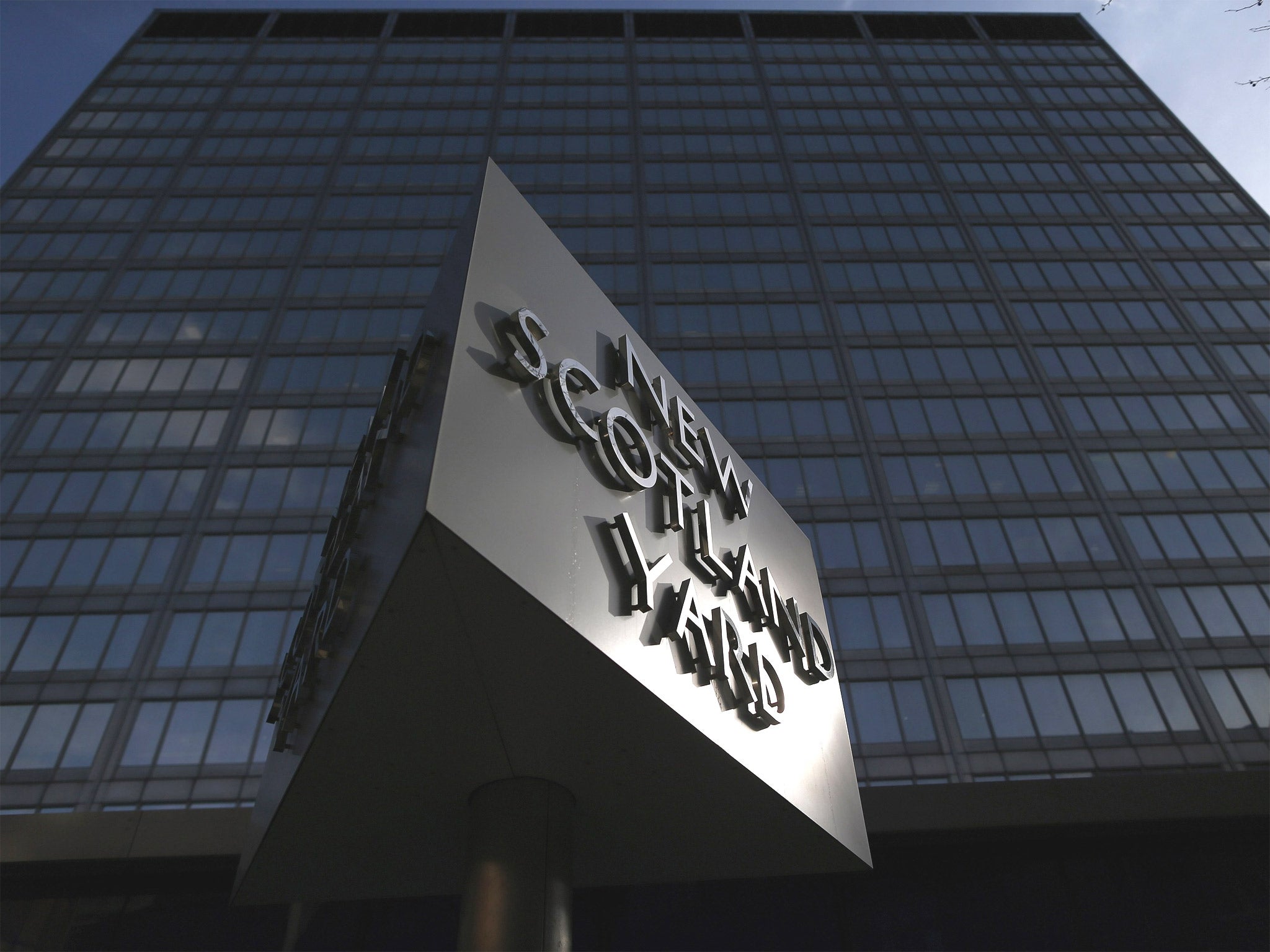Exclusive: Secret SECOND Metropolitan Police corruption probe revealed
Hitherto undisclosed Operation Zloty found ‘dozens’ of Met detectives in pay of organised crime. Investigation could fill gaps left by mass shredding of evidence from Operation Othona

The Metropolitan Police corruption scandal has deepened after The Independent uncovered the existence of a previously secret investigation into criminal officers that went much further than the files destroyed by Scotland Yard.
Operation Zloty, a wide-ranging inquiry spanning at least nine years, found dozens of rogue detectives in the employ of organised crime and operating with “virtual immunity”.
The “long-term intelligence development operation” included information on police corruption originally gathered by 17 other investigations – including Operation Othona, the contents of which were inexplicably shredded sometime around 2003.
Crucially, Zloty included bombshell evidence from Othona about a “persistent network” of corrupt officers that could have been beneficial to a landmark review commissioned by the Home Secretary into how the Stephen Lawrence murder was handled by the Metropolitan Police.
Mark Ellison QC was forced to inform Theresa May earlier this month that he could not finalise conclusions on whether police corruption tainted the Lawrence case because a “lorry-load” of Othona material was mysteriously shredded by the Met more than 10 years ago.
However, the emergence of Zloty means some of the Othona material may still exist – and the network of corrupt officers could still be brought to book.
Mr Ellison names dozens of sensitive investigations into police corruption in his report. But Zloty is not among them. The Independent asked Mr Ellison’s office whether or not Scotland Yard had disclosed Zloty to his team, but a spokesman said he was “not able to comment”.
Earlier this week, the Met Commissioner Sir Bernard Hogan-Howe admitted corrupt police officers may escape justice due to the controversial destruction of Operation Othona, which included intelligence on detectives trafficking drugs, fabricating evidence and selling sensitive police information to organised crime syndicates.
A senior former Scotland Yard source with knowledge of its anti-corruption command said of Zloty: “There is no way the Met would have just stopped its deep-cover inquiries into corruption once Othona had been wound up in 1998.
“It sounds like Zloty may still exist and, if it does, I am surprised there is no reference to it in the Ellison report.”
When Scotland Yard was asked whether Operation Zloty was shared with the Ellison review, a spokesman replied: “This is a report marked ‘secret’ – it is inappropriate to discuss it publicly.”
Keith Vaz, chairman of the Home Affairs Select Committee, said: “Anything less than full disclosure on these issues is unnerving.
“The committee will want to hear evidence from Mr Ellison to be satisfied that he was given all of the information he requested during his inquiry. We will also want to be reassured all other relevant inquiries were disclosed to him.”
A leaked police report from 2002, codenamed Operation Tiberius, concluded organised crime syndicates were able to infiltrate Scotland Yard “at will” through the bribing of corrupt police officers.
Buried in the small print of Tiberius is a reference to Othona and Zloty.
“Operation Zloty is a long-term intelligence development operation designed to assess the current threat that organised criminals and their associations with serving and retired police officers pose to the MPS, other law enforcement agencies and the criminal justice system,” the Operation Tiberius file says.
“The analysis of intelligence available indicates that a persistent network continues to thrive within the MPS, particularly the north-east London area.
“These subjects have been undermining the MPS with virtual immunity for the last 10 years and were identified during the course of two previous Directorate of Professional Standards intelligence-gathering operations, ‘Othona’ and ‘Centaur’.”
A spokesperson for the Met said: “We retain a powerful anti-corruption unit and the Met is a hostile environment for corrupt officers. The Met’s Anti-Corruption Command investigates allegations and intelligence relating to corrupt police officers and to those that may seek to corrupt them.”
Bookmark popover
Removed from bookmarks